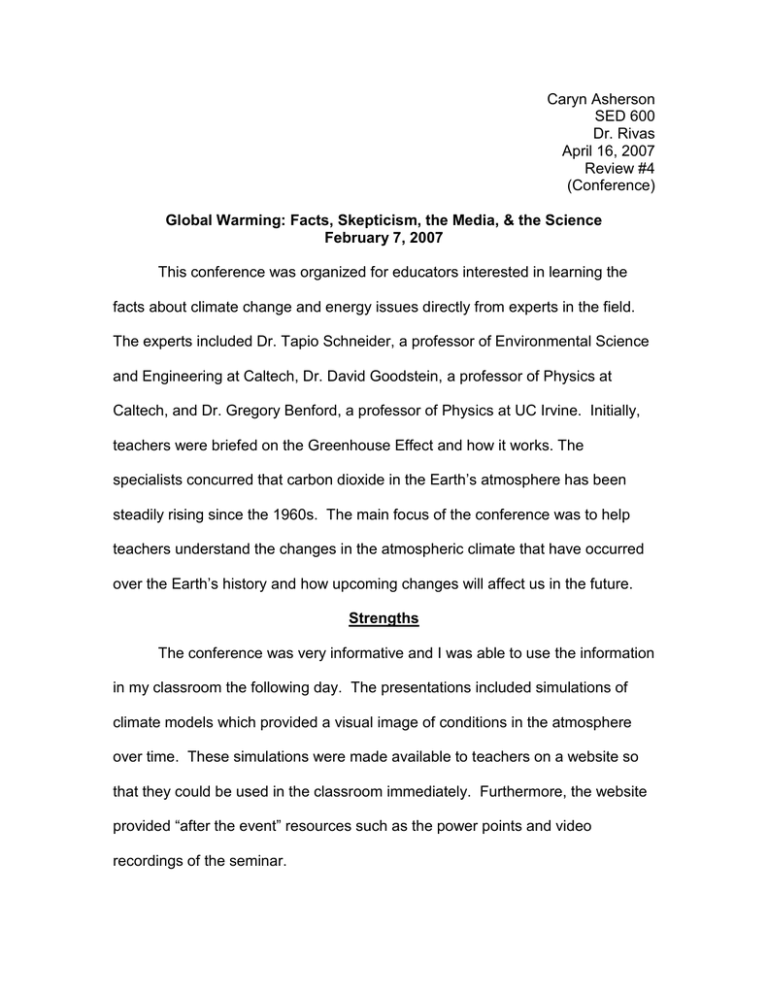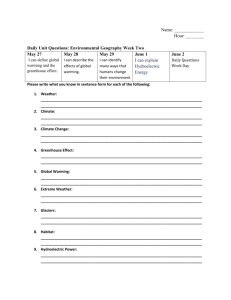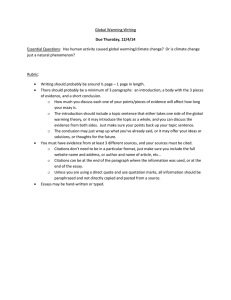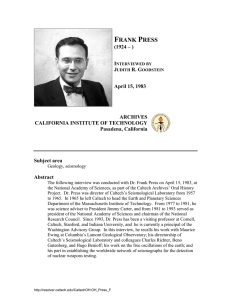Review #3 - Conference
advertisement

Caryn Asherson SED 600 Dr. Rivas April 16, 2007 Review #4 (Conference) Global Warming: Facts, Skepticism, the Media, & the Science February 7, 2007 This conference was organized for educators interested in learning the facts about climate change and energy issues directly from experts in the field. The experts included Dr. Tapio Schneider, a professor of Environmental Science and Engineering at Caltech, Dr. David Goodstein, a professor of Physics at Caltech, and Dr. Gregory Benford, a professor of Physics at UC Irvine. Initially, teachers were briefed on the Greenhouse Effect and how it works. The specialists concurred that carbon dioxide in the Earth’s atmosphere has been steadily rising since the 1960s. The main focus of the conference was to help teachers understand the changes in the atmospheric climate that have occurred over the Earth’s history and how upcoming changes will affect us in the future. Strengths The conference was very informative and I was able to use the information in my classroom the following day. The presentations included simulations of climate models which provided a visual image of conditions in the atmosphere over time. These simulations were made available to teachers on a website so that they could be used in the classroom immediately. Furthermore, the website provided “after the event” resources such as the power points and video recordings of the seminar. Weaknesses Although the conference was informative, a great deal of the information was too technical for the layman. Furthermore, since the conference was designed for educators, it would have been beneficial if some techniques for teaching about global warming were presented. The website provides a CO2 lab which is great, but it would have been useful if the teachers were offered additional ideas on how to instruct students about this topic in a way that does not provoke fear and panic. Reflection Global warming has become a controversial issue. Teachers aren’t always sure what to believe or what to teach regarding the topic. For example, a couple of months ago, there were hundreds of emails exchanged on the NSTA listserve regarding the controversy. Things got so heated that NSTA had to publish a statement on their website concerning their stand on the topic. I went to this particular conference so that I could get some answers for my students. I have read so many conflicting reports about global warming. As a result, I do not know how to answer their questions anymore. I needed some clear-cut, uncomplicated understanding of what most scientists believe is happening on the subject and I believe that is what I got. I can now tell my students that we cannot stop the climate from changing, but there are things we can do to control how fast it changes.






